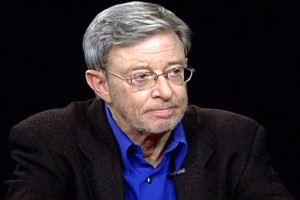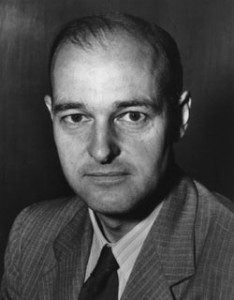Donald Trump’s Five Questions on US Foreign Policy
Along with his self-congratulatory bombast, Donald Trump has offered a rare critique of Official Washington’s “group think” about foreign policy, including the wisdom of NATO expansion and the value of endless war, notes John V. Walsh.
“Only Donald Trump (among the Presidential candidates) has said anything meaningful and critical of U.S. foreign policy.” No, that is not Reince Priebus, chair of the RNC, speaking up in favor of the presumptive Republican nominee. It is Stephen F. Cohen, Emeritus Professor of Russian History at Princeton and NYU, a contributing editor for The Nation, that most liberal of political journals.
Cohen tells us here that: “Trump’s questions are fundamental and urgent, but instead of engaging them, his opponents (including President Obama) and the media dismiss the issues he raises about foreign policy as ignorant and dangerous. Some even charge that his statements are like ‘Christmas in the Kremlin’ and that he is ‘the Kremlin’s Candidate’ — thereby, further shutting off the debate we so urgently need.” (Cohen’s comment about the lack of a meaningful critique of U.S. foreign policy also covers the statements of Sen. Bernie Sanders.)
Cohen first enunciated Trump’s five questions during one of his weekly discussions on relations between Russia and the West on The John Batchelor Show, on WABC-AM (also on podcasts).
On the April 6 broadcast, Cohen said:
Let me just rattle off the five questions he [Trump] has asked. [First] why must the United States lead the world everywhere on the globe and play the role of the world’s policeman, now for example, he says, in Ukraine? It’s a question. It’s worth a discussion.
Secondly, [Trump] said, NATO was founded 67 years ago to deter the Soviet Union. The Soviet Union ended 25 years ago. What is NATO’s mission? Is it obsolete? Is it fighting terrorism? No, to the last question, it’s not. Should we discuss NATO’s mission?
Thirdly, [Trump] asks, why does the United States always pursue regime changes? Iraq, Libya, Ukraine, and now it wants a regime change in Syria, Damascus. When the result is, to use Donald Trump’s favorite word, the result is always “disaster.” But it’s a reasonable question.
Fourthly, why do we treat Russia and Putin as an enemy when he should be a partner?
Fifth, Trump asks, about nuclear weapons – and this is interesting. You remember he was asked, would he rule out using nuclear weapons – an existential question. He thought for a while and then he said, ‘No, I take nothing off the table.’ And everybody said he wants to use nuclear weapons! In fact, it is the official American nuclear doctrine policy that we do not take first use off the table. We do not have a no first use of nuclear weapons doctrine. So all Trump did was state in his own way what has been official American nuclear policy for, I guess, 40 or 50 years. …
It seems to me that these five questions, which are not being discussed by the other presidential candidates, are essential.
Batchelor then turned the discussion to the question of NATO. Cohen replied: “When we say NATO, what are we talking about? We are not talking only about the weapons and soldiers on land and sea. We’re talking about a vast political bureaucracy with hundreds of thousands of employees and appointees, that is located in Brussels. It’s a political empire. It’s an institution. It’s almost on a par with our Department of Defense, though it gets its money from the Department of Defense, mainly, as Trump points out …
But it has many propaganda organs. If you look at the bylines of people who write op-ed pieces in many American papers, they are listed as working for the public relations department of NATO or they formerly did so. No, I would say along with the Kremlin and Washington, NATO is probably the third largest propagator of information, in this information war, in the world.
U.S. diplomat George F. Kennan who is credited with devising the strategy of deterrence against the Soviet Union after World War II.
But look, here’s the reality. And Trump came to this late. When they were discussing expanding NATO in the 1990s in the Clinton administration, it was George Kennan, who was then the most venerable American diplomat scholar on relations with Russia, who said: Don’t do it; it will be a disaster; it will lead to a new Cold War.
Since George spoke his words – and I knew him well when I taught at Princeton where he lived – we have taken in virtually all of the countries between Berlin and Russia. NATO now has 28 membership states. But if you sit in the Kremlin and you see NATO coming at you over 20 years, country by country like PAC-man, gobbling up countries that used to be your allies, who appears to be the aggressor?
So – the expansion of NATO has been a catastrophe. And that has been, in some ways, apart from fighting the war in Afghanistan – from which I believe it has now withdrawn, it is now solely American (I may be wrong about that) – and in addition taking on the American project of missile defense, expanding toward Russia has been NATO’s only mission since the end of the Soviet Union.
So people can ask themselves, if they ask calmly and apart from the information war, … do we have less security risks, less conflict, today after this expansion to Russia’s borders, bearing in mind that the Ukrainian crisis is a direct result of trying to bring Ukraine into NATO as was the Georgian war, the proxy war with Russia in 2008. Are we, as [President] Reagan would say, are we better off today? We are not! So easily at a minimum, we have to rethink what it is NATO is doing.
So get thee to the website for the American Committee on East West Accord and listen to the weekly Batchelor-Cohen podcasts. They are an ideal antidote to the avalanche of Russia-bashing and Putin-demonizing that we must endure. While you are at it, check out the other leading members of ACEWA, a superb and badly needed organization – and make a contribution.
John V. Walsh is a frequent contributor to CounterPunch.com, Antiwar.com, LewRockwell.com and DissidentVoice.org. He is a founding member of “Come Home America.” Until recently he was Professor of Physiology and Neuroscience at the University of Massachusetts Medical School. He can be reached at [email protected].




